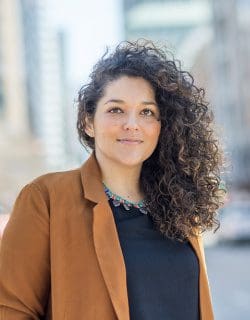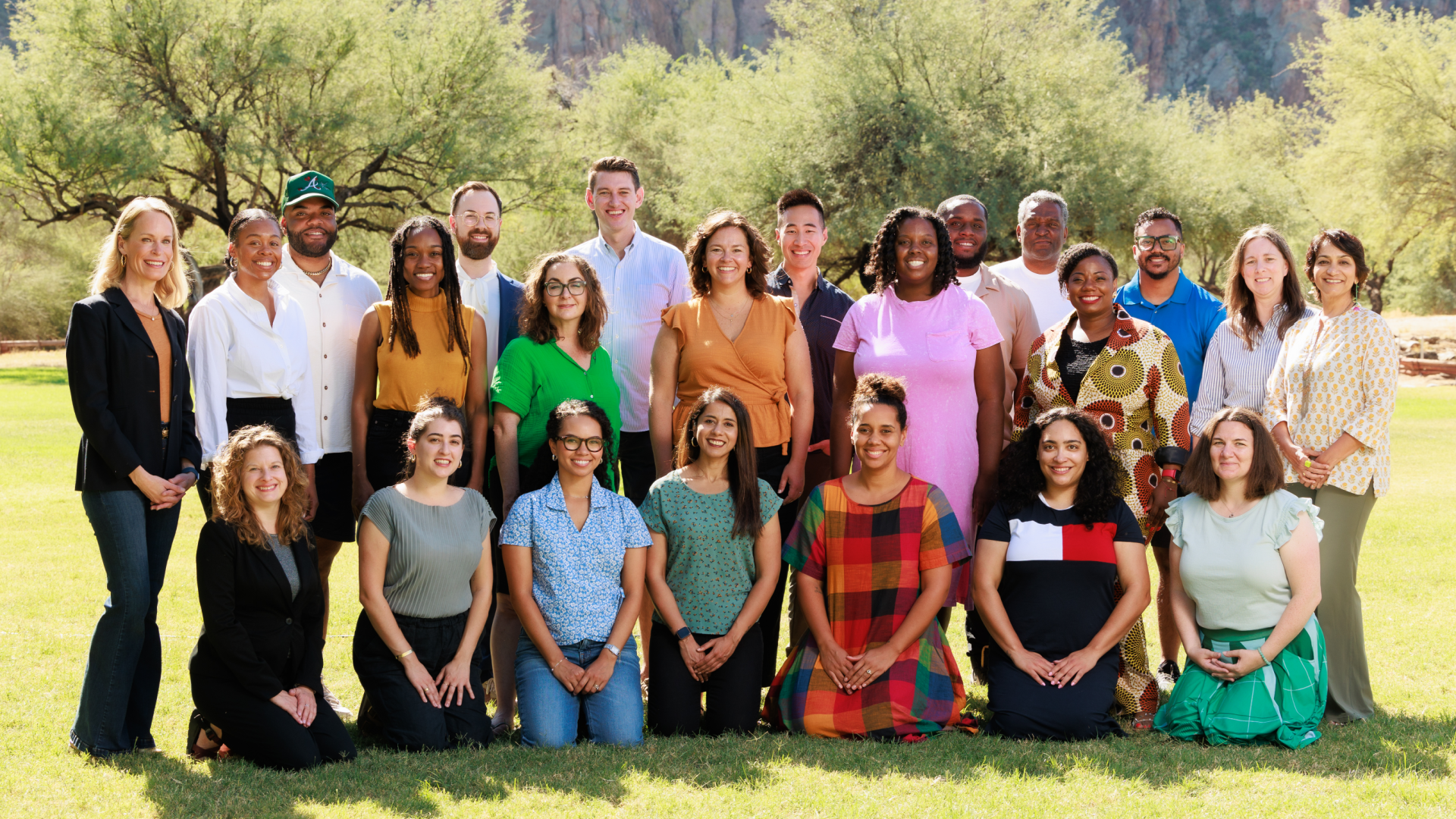The Othering & Belonging Institute (OBI) at University of California, Berkeley brings together researchers, organizers, communicators, policymakers, and other stakeholders to identify and eliminate the barriers to an inclusive, just, and sustainable society in order to create transformative change.

Ashley Gallegos
We spoke with Ashley Gallegos, Belonging Coordinator for the Institute, to learn more about their work to examine and remediate othering, and advance bridging and belonging.
IS: Tell us more about the Institute’s mission.
AG: OBI is very serious about building a world in which everyone belongs, and no one is othered. And I love that about OBI – it invites us all to go beyond the ordinary, to dream and to do big things and to try to achieve this astonishing goal. The only way we can get there is to work with a range of sectors and on a variety of levels. That’s why we’re multidisciplinary in our approach to developing forward-looking solutions to some of the world’s greatest challenges, from structural racism, to Islamophobia, to climate change.
The Institute responds to issues that require both immediate action and long-term strategy. We engage in rich emerging conversations and develop and share research that contributes to our world. We develop and share innovative communications, illustrate the importance and central nature of arts and cultural strategy, and work toward developing and implementing strategic narrative work that attempts to re-frame the public discourse from a dominant narrative of control and fear toward one that recognizes the humanity of all people, cares for the earth, and celebrates our inherent interconnectedness.
I encourage Independent Sector members to visit our website and scan the rather remarkable array of research, civic engagement, arts and narrative projects, lectures, and explainer videos of interest to anyone interested in building equitable and just structures. You should also sign up if you want to learn about our phenomenal Othering & Belonging conferences! They are not to be missed.
IS: How was the Institute formed?
AG: I’ll share the story of the institute on a fast timeline to give you a sense of its origin. I also invite you to read more details about our story on our website. The Institute’s roots were formed from an initial effort at UC Berkeley to increase diversity in both researchers and research areas. This initiative led to the creation of seven faculty clusters focused on topics such as disability studies, public health, race and education, LGBTQ citizenship, religious pluralism, and more. In 2012, a formal center was created to house the clusters called the Haas Institute for a Fair and Inclusive Society. That year, the Institute had the great fortune of bringing on Professor john a. powell as its inaugural director. john is an internationally recognized expert in the areas of civil rights and civil liberties and a wide range of issues including race, structural racism, ethnicity, housing, poverty, and democracy. From his expertise and experienced leadership, the Institute developed many programs, initiatives and open-source educational tools. It also took on a new name in 2019 to more distinctly center its key frames. 
The Othering and Belonging framework holds two key elements, “Othering” and “Belonging.” Each word comes with nuanced meaning and associated practices. Briefly though, Othering is a word used to describe the multiple forms of marginalization and exclusion expressed in different ways and experienced by different people. It gives name to the wider view of how groups are situated in society based upon race, gender, sexual orientation, ability, and religion.
Belonging, or belonging without othering as we understand it at OBI, describes values and practices where no person is left out of our circle of concern. Belonging means more than having just access. It means having a meaningful voice and the opportunity to participate in the design of political, social, and cultural structures. Belonging includes the right to both contribute and make demands upon society and political institutions.
IS: Tell us about your organization’s areas of interest and the community or communities you serve.
AG: The Institute’s interests are vast and interconnected to the goal of co-creating a world where we all belong. While we are based in the Bay Area at UC Berkeley, we also work with institutions and thinkers across the state and country, and we our expanding our global footprint with our new program in Europe.
We identify and explain multiple ways we as individuals, groups, and structures “other,” and the multiple ways we as individuals and groups desire to belong often in connection or in partnership to systems and structures. We see the nonprofit sector as a key contributor in advancing towards this world.
Key goals we hold are:
- Advancing multidisciplinary research, analysis, policy, and strategic narrative
- Building relationships among diverse groups and across disciplines
- Employing communications and culture to illuminate research and impact policy
These are actualized through our programmatic work that focuses on Community Power and Policy Partnerships, Equity Metrics, Global Justice, Just Public Finance, Network for Transformative Change, Othering and Belonging in Europe, and work within the Research Faculty Clusters. The shape of our work varies, depending on the needs of the moment and of our society.
IS: As an Independent Sector community member, what are you looking forward to that will help your organization better achieve your mission and serve your community?
AG: We are looking forward to learning more about what the opportunities of membership could entail. We are interested in engaging in shared learning and creating, and excited to be alongside people and groups who have a shared goal of making the world a more just place.
Last year we collaborated on the Upswell Summit and our Othering & Belonging Conference, and we look forward to continuing our work together as part of the IS member community.
The top photo is courtesy of the Othering & Belonging Institute. Learn about other Independent Sector members and becoming a member.



